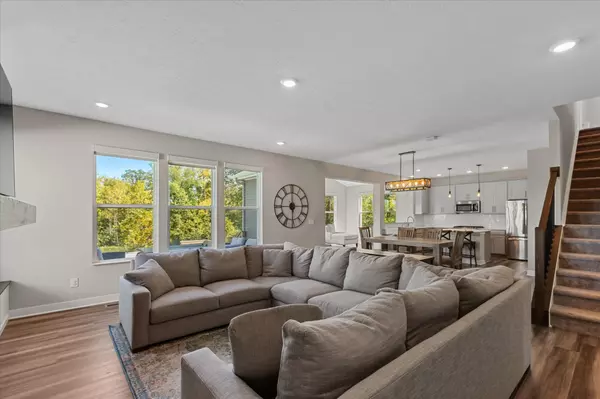
What is a Home Inspection?
Purchasing a home is one of the most significant investments you’ll ever make, so it’s crucial to understand the home inspection process inside and out. A thorough home inspection helps you avoid costly surprises and ensures you're making an informed decision. Whether you are looking for "home inspectors near me" or wondering about "house inspection costs," this guide will cover everything you need to know about inspections, from asbestos testing to roof inspections and air quality assessments. What is a Home Inspection and Why is It Essential? A home inspection is a detailed evaluation of a property’s condition by a certified home inspector. This inspection typically includes an assessment of the home’s structure, systems, and components, such as plumbing, electrical, heating, cooling, and more. The main goal is to identify potential issues that could affect the home’s value, safety, and livability. Understanding this process is essential to avoid surprises down the road and ensure the home you purchase meets your needs and expectations. Think of a home inspection as your opportunity to find out the true condition of the house. It's like taking a car to a mechanic before purchasing it, ensuring that there are no hidden issues that could cost you later. How to Find the Right Home Inspector Near Me Finding the right "home inspector near me" can be a daunting task, but it’s essential to have a reliable expert on your side. Here are a few tips to help you find a certified, trustworthy inspector: Research and Reviews: Search for "house inspector near me" on trusted review platforms like Google or Yelp. Reviews and testimonials from other buyers can give you valuable insights. Certifications and Qualifications: Make sure the inspector holds certifications from reputable organizations like the American Society of Home Inspectors (ASHI) or the National Association of Home Inspectors (NAHI). Experience: Look for a professional with experience in the local market and specific inspection areas (like mold, foundation, and roof inspections). Home Inspection Cost: What to Expect One of the first questions buyers have when scheduling a home inspection is, "What is the home inspection cost?" The price can vary depending on several factors, including the home’s size, location, age, and the type of inspection you need. On average, home inspections cost between $300 and $500, but this is just for the basic inspection. If you need additional services such as a mold inspection and testing, asbestos testing, or a foundation inspection, the price can increase. Factors Influencing House Inspection Price Property Size: Larger homes require more time and a more thorough inspection, which can increase the cost. Location: Home inspection prices can vary based on your location. Urban areas may have higher costs due to demand and cost of living. Specialized Inspections: Adding inspections like crawlspace inspection, roof inspector services, or air quality testing will add to the overall cost. What Inspectors Look For During a House Inspection During a home inspection, the inspector will evaluate the property to ensure everything is functioning properly and to identify any existing or potential problems. Below are some key areas a home inspector will assess: Structure and Foundation Inspection The structure of a home, including the foundation, is one of the most critical aspects of an inspection. Cracks in the foundation, settling, or water damage can indicate major issues that need immediate attention. A house inspector near me will examine the foundation carefully, looking for signs of shifting or unevenness. If any problems are found, a more detailed foundation inspection may be required. Electrical, Plumbing, and HVAC Systems Inspecting the electrical system, plumbing, and HVAC (heating, ventilation, and air conditioning) systems is also a priority. Problems in these systems can be expensive to fix and could potentially pose health or safety risks. The inspector will look for outdated wiring, faulty plumbing, or poorly maintained HVAC systems. Roof and Attic Inspection The roof is one of the most expensive components of a house to replace, so having a qualified roof inspector is vital. The inspector will check for signs of wear and tear, missing shingles, and water damage. Additionally, they will inspect the attic for adequate insulation and ventilation. Crawlspace Inspection Crawlspaces can often be overlooked but are essential for ensuring a home’s overall integrity. A crawlspace inspection checks for moisture, mold, pests, and structural issues. It’s a crucial area, especially in older homes where the foundation may have been compromised over time. Mold and Asbestos Testing If you are buying an older home or a home in a damp environment, you may need to request specialized tests like mold inspection and testing. Mold can cause health problems and indicate hidden moisture issues. Asbestos testing may also be necessary in homes built before the 1980s, as this material can pose serious health risks. Home Air Quality Testing Air quality testing is a valuable inspection, especially in homes with older HVAC systems, poor ventilation, or in areas prone to pollution. It helps ensure that your future home offers a healthy living environment. Common Findings and How to Respond Home inspections often uncover issues that require attention. While some of these findings might seem alarming, many can be addressed or negotiated with the seller. Below are common inspection findings and how you should respond: Minor Issues Cosmetic Issues: These can include minor cracks in the wall or small dents in fixtures. They are not a major concern but can be used in negotiations for a price reduction. Electrical or Plumbing Problems: If the issue is minor (e.g., a leaky faucet or a non-functional light switch), it can often be fixed quickly by a professional. Major Issues Foundation Problems: Serious foundation issues, such as cracks or settling, may require extensive repairs. In this case, you should request a specialist’s opinion and negotiate repair costs or ask for a price reduction. Mold or Asbestos: These can be hazardous to your health and typically require remediation. You should get quotes from certified specialists and discuss them with the seller. Preparing for a Home Inspection To make the most of your home inspection, preparation is key. Here are a few tips to ensure everything runs smoothly: Attend the Inspection: If possible, attend the inspection in person. This allows you to ask the inspector questions and get immediate answers on any concerns you have. Make Sure the Inspector Has Access: Ensure that the inspector has access to all necessary areas of the house, such as the attic, basement, and crawlspace. Clear any obstructions before the inspection. Review the Report: After the inspection, you’ll receive a detailed report outlining the inspector’s findings. Take the time to review the report carefully and consult with your real estate agent about the next steps. Your Role in the Inspection Process As your agent, we’re here to guide you through the inspection process. We’ll help you interpret the findings, advise you on how to respond, and ensure that you’re protected. If necessary, we’ll assist in negotiating with the seller to address any issues discovered during the inspection. Remember, the home inspection process is your opportunity to ensure that the home you’re buying is safe, functional, and worth the investment. By understanding the inspection process, choosing the right inspector, and knowing what to look for, you’ll be in a stronger position to make informed decisions and negotiate effectively.

How to Make an Offer on a House
Understanding the Elements of a Strong Offer Making a strong offer on a house is more than just offering a competitive price. Sellers look at multiple aspects of an offer to determine the best fit. A well-rounded offer can make the difference between winning your dream home or losing out to another buyer. Let’s break down the essential elements: 1. Competitive Price Your offer price is a critical component. In a competitive market, offering at or above the asking price is often necessary. Here are some tips for setting the right price: Research comparable homes (comps) to understand market value. Consider the competition; your agent can help gauge how aggressive you need to be. Work within your pre-approval limit to avoid financial strain. 2. Contingencies Contingencies protect the buyer but can make your offer less attractive. Common contingencies include: Home Inspection: Ensures the property has no major defects. Financing Contingency: Protects you if your loan falls through. Appraisal Contingency: Ensures the property value matches the offer price. In competitive markets, consider limiting contingencies while still protecting your interests. Discuss options with your agent to strike the right balance. 3. Earnest Money Earnest money is a deposit that shows you’re serious about buying the property. Offering a higher deposit can signal your commitment. Typically, earnest money is 1–3% of the purchase price, but increasing this amount can make your offer stand out. Personalization Tactics: Connecting with the Seller Sometimes, a personal touch can tip the scales in your favor. Sellers often have an emotional attachment to their homes, and appealing to their emotions can make your offer more memorable. Writing a Personal Letter Including a letter to the seller is a great way to establish a connection. Here’s what to include: A brief introduction of yourself and your family. Your appreciation for their home and specific features you love. Why this home is perfect for you (e.g., proximity to work, schools, or family). A promise to care for the home as much as they have. Other Personalization Strategies Beyond a letter, consider these tactics: Offer flexibility on the closing date if it helps the seller’s timeline. Include a small, thoughtful gift, like a handwritten card or a token of appreciation. Counteroffers and Negotiation After submitting your offer, the seller may respond with a counteroffer. This is a normal part of the process and an opportunity to fine-tune the terms. Here’s what to expect: What Is a Counteroffer? A counteroffer is the seller’s response to your initial offer, suggesting changes to price, contingencies, or other terms. For example: They may ask for a higher price. They could request fewer contingencies. They might adjust the timeline for closing. How to Negotiate Effectively Negotiating a home purchase requires strategy and communication. Here’s how your agent will advocate for you: Presenting market data to justify your offer. Communicating your flexibility on terms like closing dates. Ensuring that counteroffers align with your budget and goals. Negotiations may go through several rounds, but your agent’s expertise will help ensure a fair and favorable outcome. Navigating Rejections and Staying Resilient Rejections are an inevitable part of the home-buying journey, especially in competitive markets. It’s important to stay resilient and focus on your ultimate goal. Why Offers Get Rejected Common reasons for rejection include: Another buyer submitted a higher or all-cash offer. The seller preferred an offer with fewer contingencies. Your timeline didn’t align with the seller’s needs. How to Stay Motivated Rejection can be disappointing, but every “no” brings you closer to the right home. Here are some tips to stay positive: Remember that the process takes time, and patience pays off. Learn from each experience to refine your strategy. Stay in regular communication with your agent to explore new opportunities. Making a competitive offer requires a balance of strategy, personalization, and resilience. With the right approach and guidance from your agent, you can confidently navigate the process and increase your chances of securing your dream home.

Understanding Market Conditions: How They Affect Your Home Search
Buyer’s vs. Seller’s Market Understanding the difference between a buyer’s market and a seller’s market is essential for navigating the home-buying process. Each market type presents unique opportunities and challenges, significantly influencing your offer strategy, negotiation leverage, and timeline. What Is a Buyer’s Market? In a buyer’s market, the supply of homes exceeds the demand. This scenario typically results in lower prices, more negotiating power for buyers, and longer listing periods for sellers. Key indicators of a buyer’s market include: Homes staying on the market for extended periods Sellers offering incentives, such as covering closing costs A higher inventory-to-buyer ratio In this environment, buyers can take their time and have a stronger position to request repairs or price reductions. What Is a Seller’s Market? Conversely, a seller’s market occurs when demand outpaces supply. Homes sell quickly, often with multiple offers, and prices tend to rise. In a seller’s market, buyers may face: Fierce competition for desirable properties The need to make quick decisions Higher likelihood of bidding wars Buyers in this scenario often need to focus on making their offers as attractive as possible, sometimes by waiving contingencies or offering above the asking price. Impact of Market Conditions on Timing and Pricing Market conditions don’t just influence the availability of homes; they also have a profound effect on timing and pricing. Recognizing these impacts can help you make smarter decisions and avoid surprises. Timing in a Competitive Market In a seller’s market, the window of opportunity to secure a home can be incredibly short. Properties may receive offers within hours of listing, making it essential to act quickly. To stay competitive: Get pre-approved for a mortgage to demonstrate financial readiness. Work with an agent who can schedule showings as soon as homes are listed. Be prepared to make a swift yet informed decision. Pricing Dynamics in Different Markets In a buyer’s market, you may have room to negotiate the price below the asking amount. Conversely, in a seller’s market, it’s not uncommon to pay over the asking price to outbid competitors. Understanding pricing trends in your target area can help set realistic expectations and guide your budgeting decisions. How You Navigate Market Conditions An experienced real estate agent is your greatest asset when navigating fluctuating market conditions. By adjusting strategies and leveraging market insights, your agent can help protect your interests, whether the market favors buyers or sellers. Strategies for a Buyer’s Market In a buyer’s market, the focus is on maximizing your negotiating power. Strategies include: Offering below asking price when justified by market data Requesting contingencies for inspections, repairs, or appraisals Taking your time to thoroughly evaluate each property Strategies for a Seller’s Market In a seller’s market, the goal is to stand out among competing buyers. Your agent may recommend: Submitting your highest and best offer upfront Writing a personalized letter to the seller Waiving non-essential contingencies (but only after careful consideration) Balancing Emotional Decisions Market conditions can evoke a range of emotions, from excitement to frustration. Your agent’s role is to keep you focused on your goals, ensuring that emotional decisions don’t compromise your long-term satisfaction. Setting Realistic Expectations Based on Market One of the most important aspects of house hunting is managing expectations. Market conditions often dictate how much flexibility and patience are required, particularly in fast-moving or highly competitive markets. Adjusting to a Seller’s Market In a seller’s market, buyers must be prepared for challenges such as limited inventory and heightened competition. Key adjustments include: Being flexible on move-in timelines Considering alternative neighborhoods or property types Accepting the possibility of multiple offers before success Embracing Opportunities in a Buyer’s Market A buyer’s market offers more room for creativity and exploration. Use this time to explore diverse options, negotiate favorable terms, and thoroughly evaluate properties without pressure. Long-Term Perspective Regardless of market conditions, keeping a long-term perspective ensures that your decision aligns with both your immediate needs and future goals. Patience and adaptability often lead to the most rewarding outcomes.
Categories
Recent Posts










